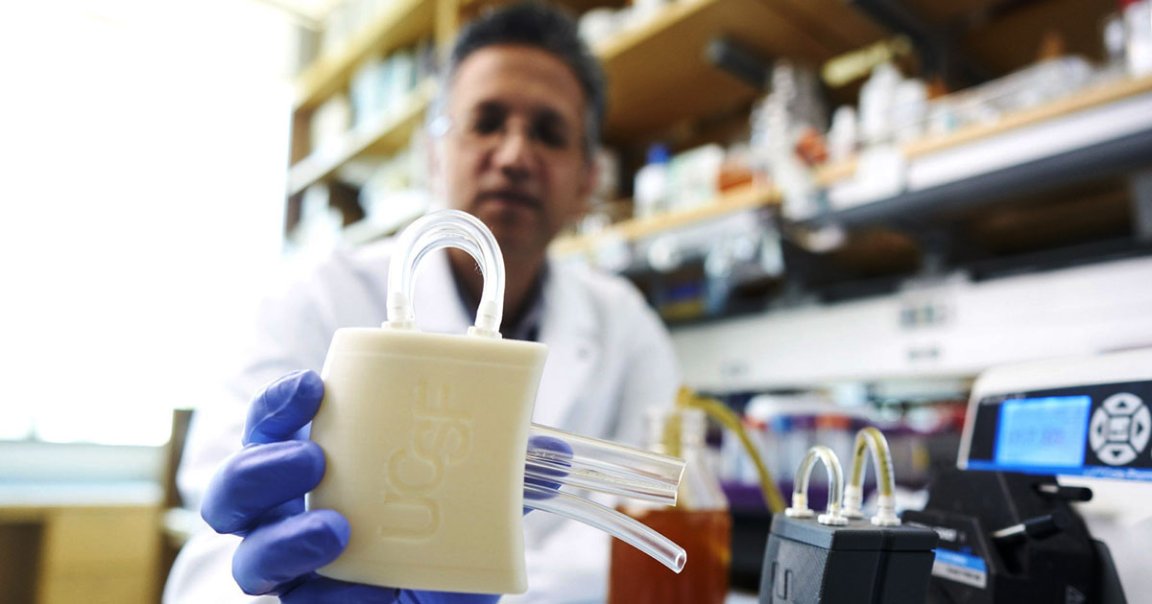
Scientists at UC San Francisco have developed a bioreactor, designed to mimic some of the vital functions of a kidney, that can survive inside a pig for at least a week.
As detailed in a pilot study published in the journal Nature Communications, the team placed human kidney cells in an implantable “proof-of-concept” device. Seven days after being implanted in a pig, the cells inside the bioreactor maintained over 90 percent of their “viability and functionality,” according to the paper.
The research is a small — albeit intriguing — step, demonstrating that a host’s body won’t necessarily reject the bionic organ. More work is needed before we can say for certain whether such a bioreactor could replace a failing human kidney, but for patients with kidney disease who currently rely on expensive and inconvenient treatments like dialysis, the prospect is tantalizing.
Instead of replacing the kidney outright, the researchers are hoping to build what amounts to an implantable dialysis machine that can keep people alive following kidney failure. Conventional dialysis machines are large, complex machines that are less-than-stellar replacements for a kidney transplant, so the hope is that a sealed gadget housing real kidney cells could one day be a happy medium between the two.
It’s a large-scale, country-wide issue. More than half a million people in the US need dialysis several times a week, and donor kidneys are exceptionally hard to come by. Only around 20,000 people end up getting a new kidney a year in the US, despite there being around 100,000 people on the organ waitlist.
The goal of this latest UC San Francisco research was to show the “potential feasibility of an implantable bioreactor for renal cell therapy” — but whether it can fully take over vital kidney functions in pigs, let alone humans, is still unclear.
“Our experimental design was optimized to study cell viability rather than transport or metabolic function,” the paper reads. “Future efforts will focus on increasing both cell numbers and implantation periods with an increased number of animals to establish statistical significance and definitive proof.”
It’s nonetheless an intriguing result that could lay some important groundwork.
“The bioartificial kidney will make treatment for kidney disease more effective and also much more tolerable and comfortable,” said research lead Shuvo Roy, UCSF professor of bioengineering, in a statement.
More on artificial kidneys: Fallout Between Selena Gomez and Francia Raisa May Involve Kidney Transplant